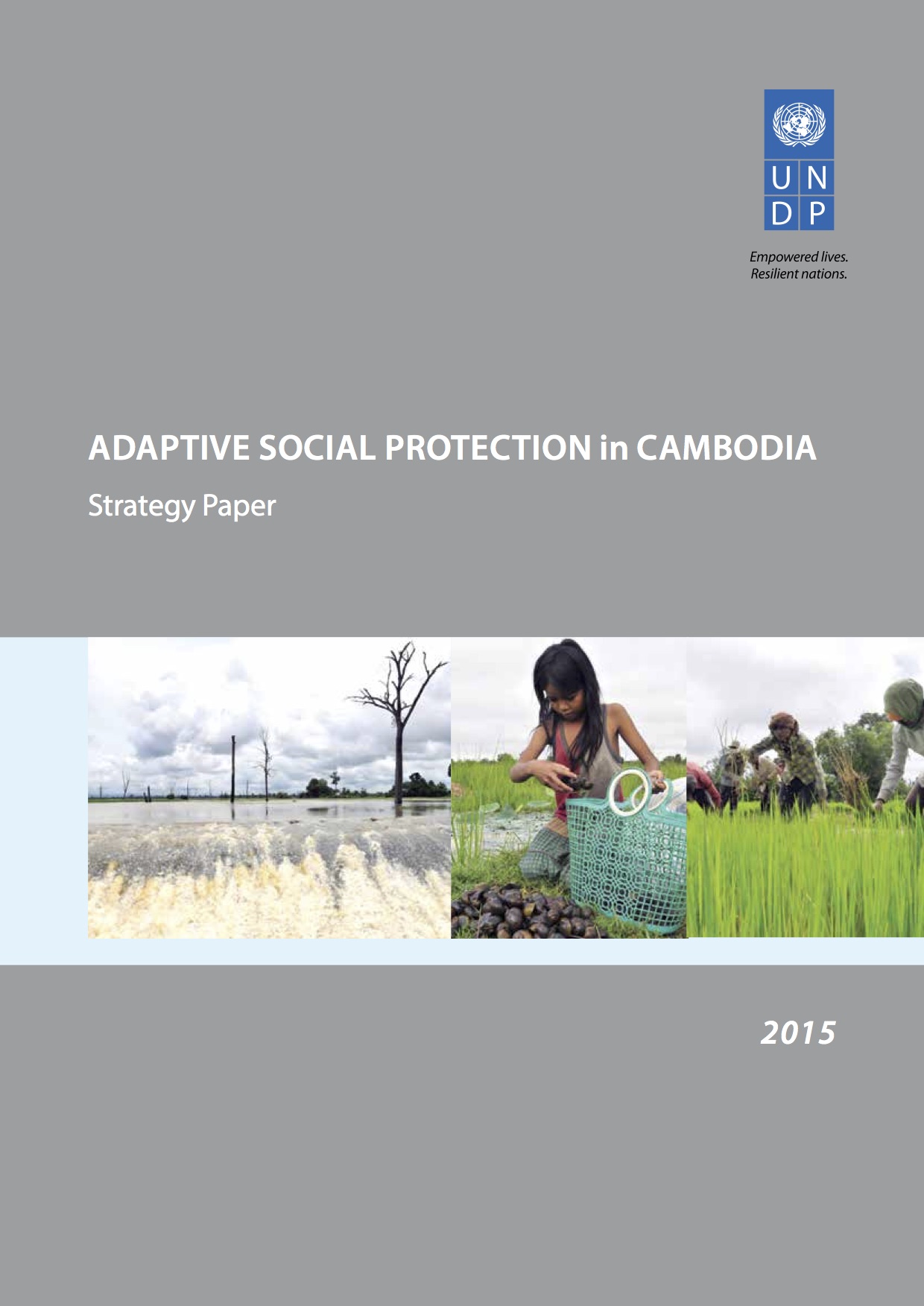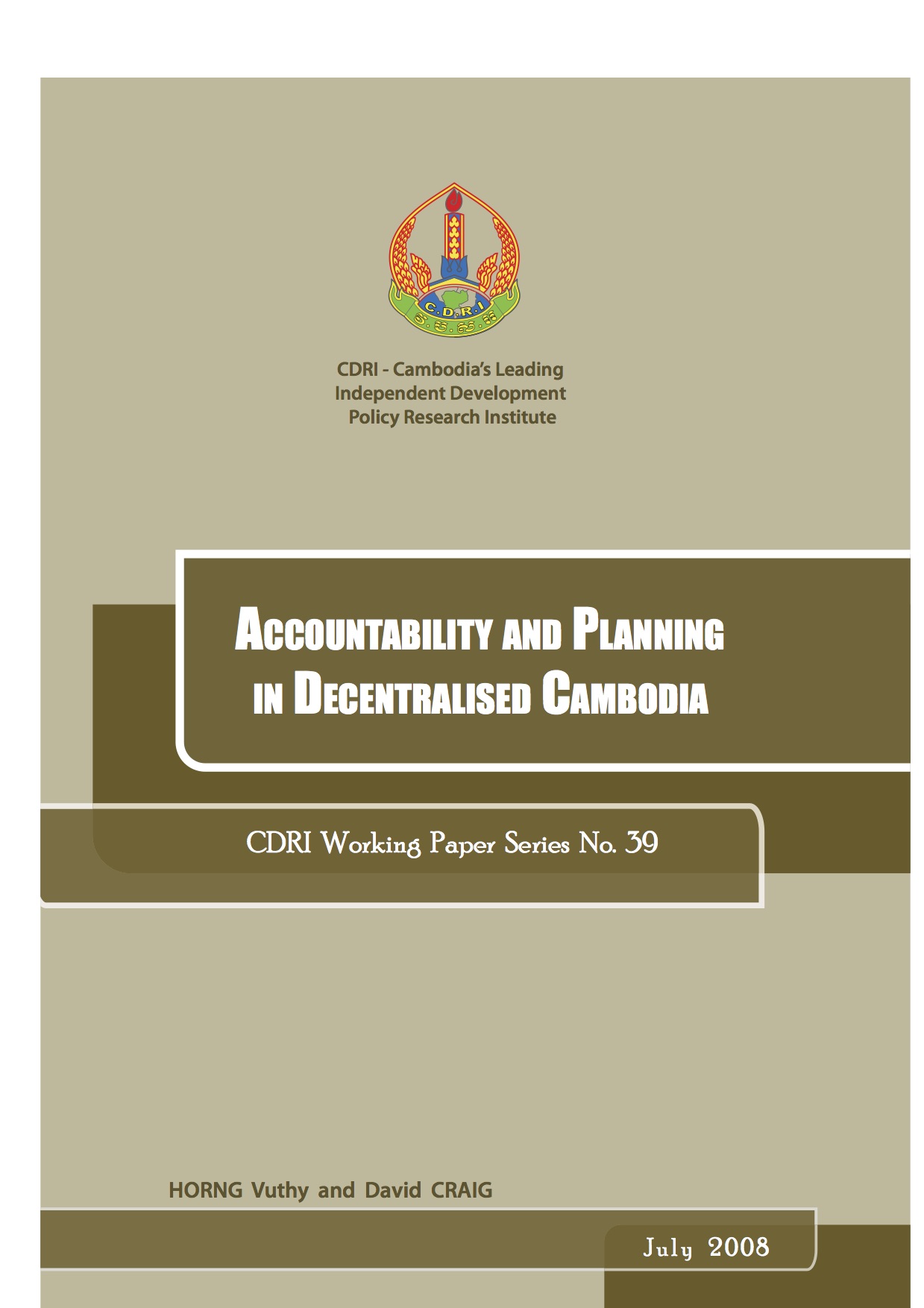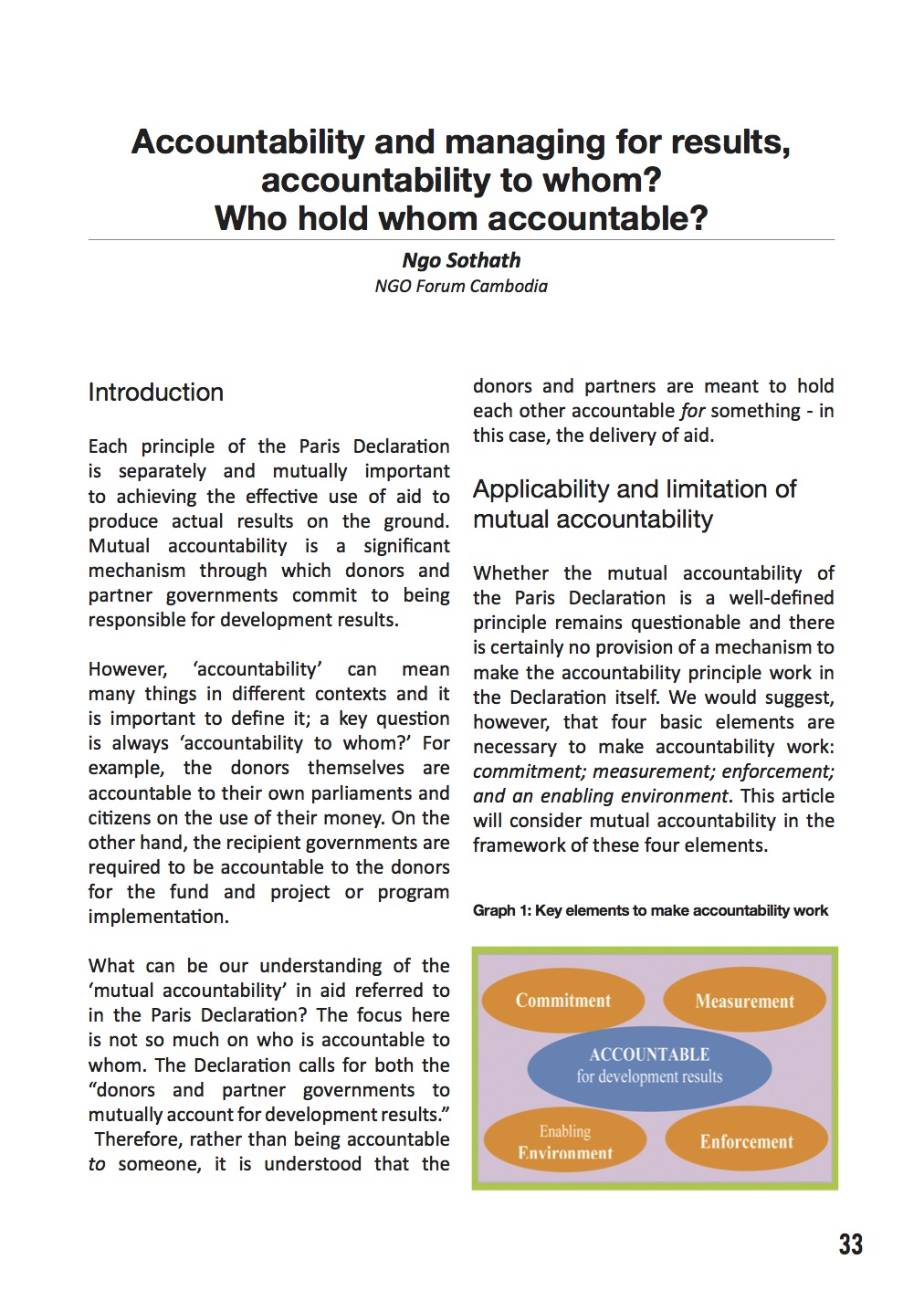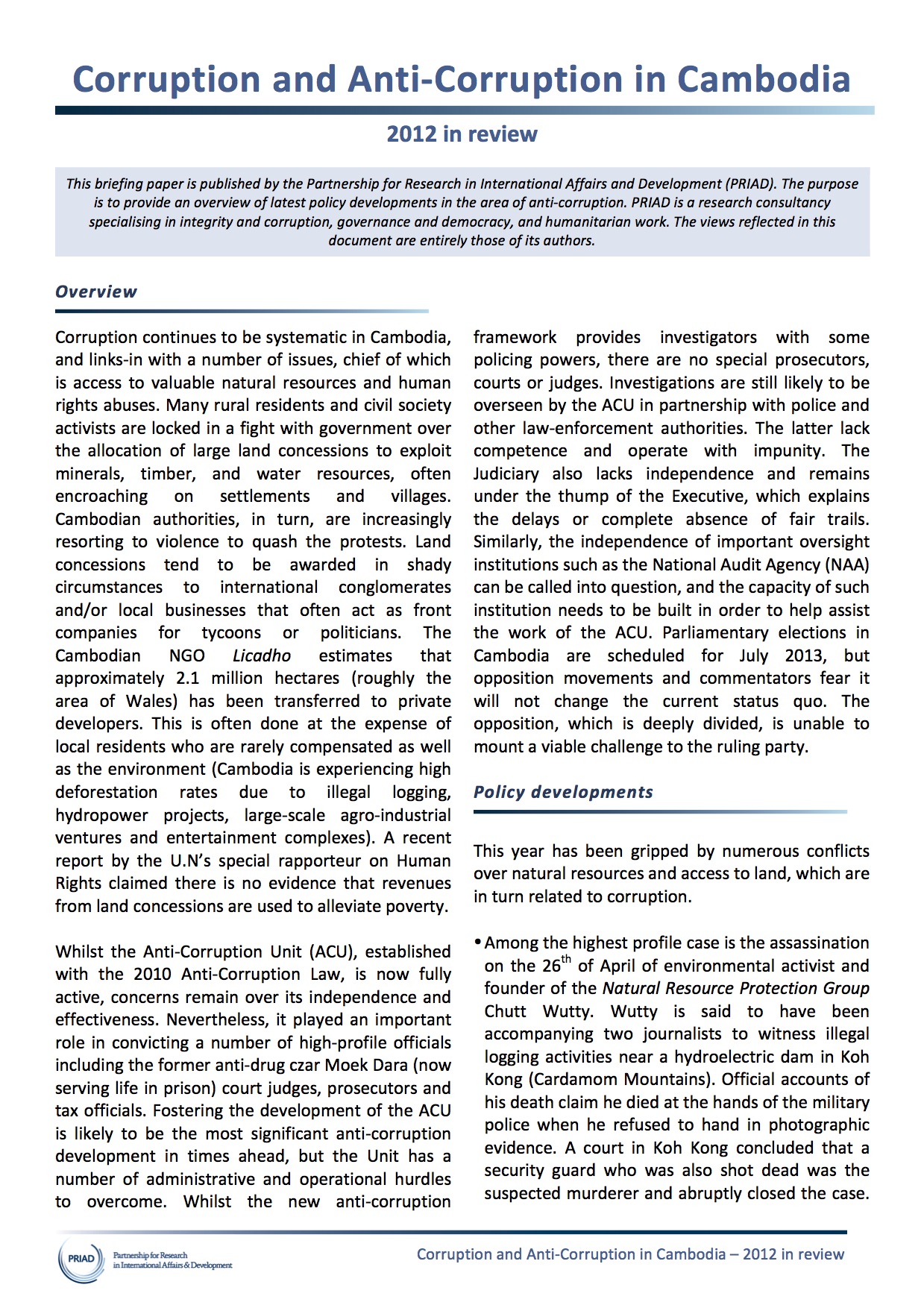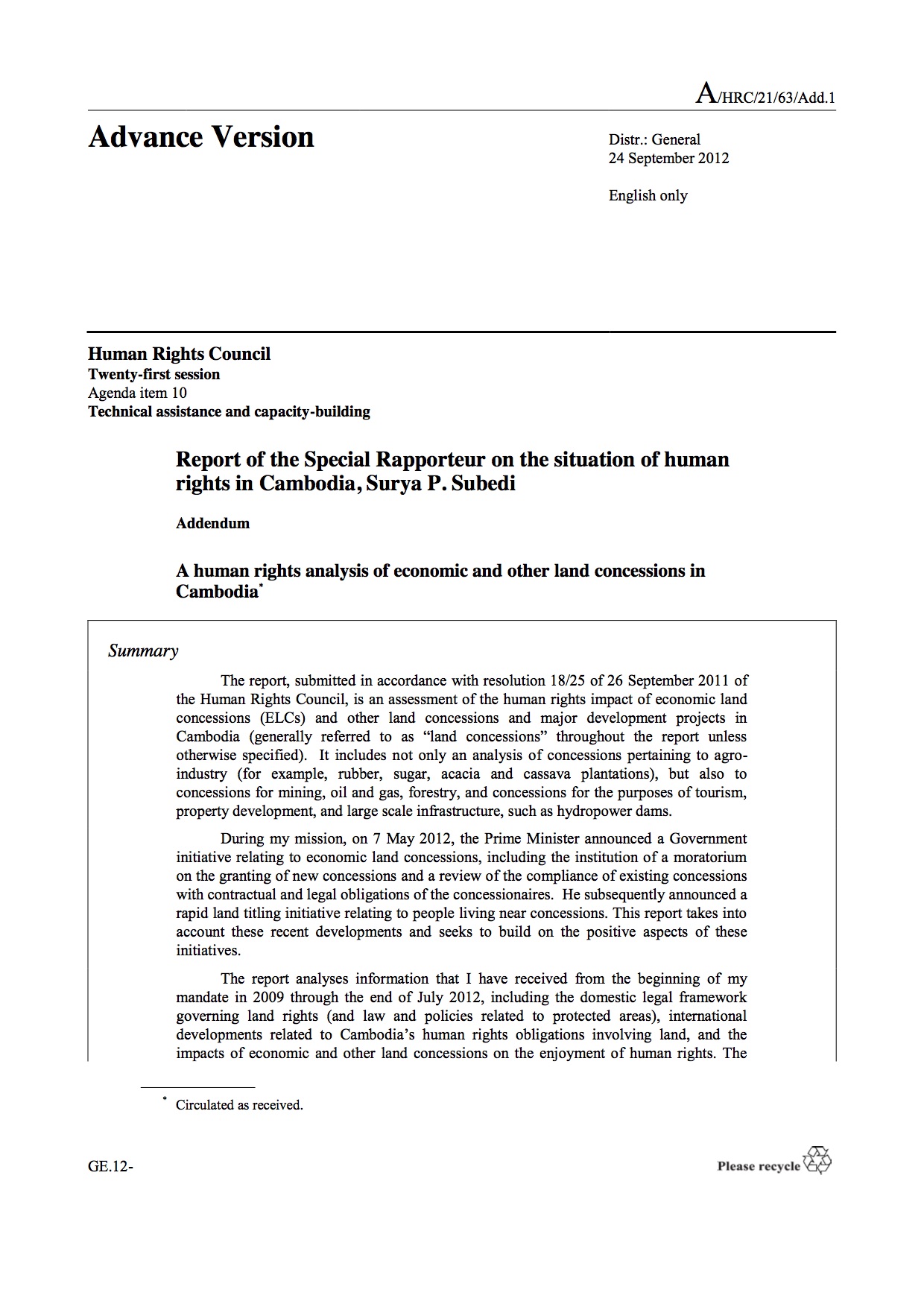Latest Entries
Adaptive Social Protection in Cambodia
Publication Year: 2015 / Sources: UNDPThis report is the third component of the UNDP-CO ASP initiative mentioned above. It builds on a Situation Analysis (Béné and Tech 2014) and two Theory of Change workshops (Manda and Yamamoto 2014) that were organized and facilitated by UNDP-CO in Cambodia in the months preceding the production of this Strategy Paper. Both the Situation Analysis and the Theory of Change workshops were aimed at generating useful background information for the Strategy Paper. The Strategy Paper outlines a framework (a roadmap) around which the three communities of practice in Cambodia would find practical opportunities to collaborate in the design, implementation, monitoring and evaluation of ASP interventions. The paper envisions a 10-year implementation horizon, while focusing primarily on major actions during the first 5-year period. Those actions include: awareness raising, identifying entry points, building capacity, learning by doing, and developing effective partnerships with government stakeholders, civil society, and development partners.
Accountability and Planning in Decentralised Cambodia
Publication Year: 2008 / Sources: Cambodia Development Resource Institute (CDRI)This paper is about sub-national accountability and planning, where accountability is the central focus and planning is considered an instrument for achieving accountability. The paper aims to understand major issues that affect sub-national planning’s ability to advance accountability and then to draw key lessons for the decentralisation and deconcentration (D&D) reform, whose main objective is to promote sub-national accountability so as sub-national planning to promote accountability has been continuously improved by the introduction and implementation of reform initiatives, most notably the former SEILA programme. Yet, planning’s ability to advance accountability faces a number of constraints.
Accountability and managing for results, accountability to whom? Who hold whom accountable? accountability to whom? Who hold whom accountable?
Publication Year: ---- / Sources: NGO Forum CambodiaEach principle of the Paris Declaration is separately and mutually important to achieving the effective use of aid to produce actual results on the ground. Mutual accountability is a significant mechanism through which donors and partner governments commit to being responsible for development results. However, ‘accountability’ can mean many things in different contexts and it is important to define it; a key question is always ‘accountability to whom?’ For example, the donors themselves are accountable to their own parliaments and citizens on the use of their money. On the other hand, the recipient governments are required to be accountable to the donors for the fund and project or program implementation. What can be our understanding of the ‘mutual accountability’ in aid referred to in the Paris Declaration? The focus here is not so much on who is accountable to whom. The Declaration calls for both the “donors and partner governments to mutually account for development results.” Therefore, rather than being accountable to someone, it is understood that the donors and partners are meant to hold each other accountable for something – in this case, the delivery of aid.
Corruption and Anti-Corruption in Cambodia 2012 in review
Publication Year: 2012 / Sources: Partnership for Research in International Affairs & Development (PRIAD)Corruption continues to be systematic in Cambodia, and links-in with a number of issues, chief of which is access to valuable natural resources and human rights abuses. Many rural residents and civil society activists are locked in a fight with government over the allocation of large land concessions to exploit minerals, timber, and water resources, often encroaching on settlements and villages. Cambodian authorities, in turn, are increasingly resorting to violence to quash the protests. Land concessions tend to be awarded in shady circumstances to international conglomerates and/or local businesses that often act as front companies for tycoons or politicians. The Cambodian NGO Licadho estimates that approximately 2.1 million hectares (roughly the area of Wales) has been transferred to private developers. This is often done at the expense of local residents who are rarely compensated as well as the environment (Cambodia is experiencing high deforestation rates due to illegal logging, hydropower projects, large-scale agro-industrial ventures and entertainment complexes). A recent report by the U.N’s special rapporteur on Human Rights claimed there is no evidence that revenues from land concessions are used to alleviate poverty.
Report of the Special Rapporteur on the situation of human rights in Cambodia, Surya P. Subedi
Publication Year: 2012 / Sources: Human Rights CouncilThe report, submitted in accordance with resolution 18/25 of 26 September 2011 of the Human Rights Council, is an assessment of the human rights impact of economic land concessions (ELCs) and other land concessions and major development projects in Cambodia (generally referred to as ―land concessions‖ throughout the report unless otherwise specified). It includes not only an analysis of concessions pertaining to agro- industry (for example, rubber, sugar, acacia and cassava plantations), but also to concessions for mining, oil and gas, forestry, and concessions for the purposes of tourism, property development, and large scale infrastructure, such as hydropower dams.

